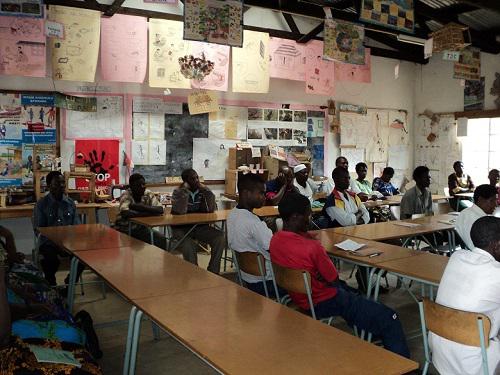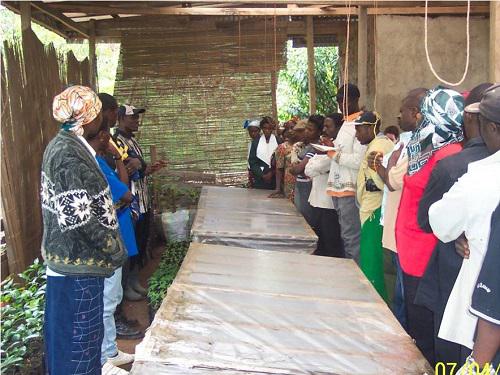Donald Mpalika
The aim of this project is to rescue the critically endangered Devils Claw Plant from becoming extinct through conservation of the remaining plants in their natural habitats and cultivation for genetic preservation and livelihoods.

One of the training courses conducted in the project area on sustinable resource harvesting and monitoring.
The IUCN and Conference of the Parties (CoP11) on CBD (2008) classified an endemic Devils Claw (Harpagophytum procumbens) as critically endangered plant because of its over-exploitation by poor local communities for food, traditional medicine and illegal export to European and Asian countries for income. Unsustainable harvest has terrifyingly reduced the population of the plant by 80% since 2004 and has further led to severe environmental degradation in the forest. This work is based on research findings (Table 1) commissioned on 12th February 2003 by the IUCN to gather biological and trade data on the critically endangered Devils Claw in the country.

One of the skills and knowledge sharing visit meeting held at Kalwe Village Natural Resource Management Area.
The project was commissioned following an incredulous sharp rise in illegal export of the plant products to Germany, Italy, France, China and Indonesia for pharmaceutical medicine. This plant has medicinal properties that are used to treat prostate cancer, arthritis, rheumatism and HIV/AIDs related illnesses (Hachfeld, 2003) and the leaves are locally used as vegetables. The incredulous sharp decline of the population of the plant in Nkuwazi forest has forced local communities living around the forest to seek technical support on how they can cultivate the plant in order to sustain their livelihoods.
In order to rescue this plant from becoming extinct, the project intends to:
(i) promote environmental education;
(ii) mobilise local communities to form farmers clubs and train them on how they can cultivate the plant on a large scale for livelihoods and genetic preservation;
(iii) promote natural regeneration of the plant and rehabilitation of its degraded habitats in the forest;
(iv) lobby the government to give Nkuwazi forest a legal status.